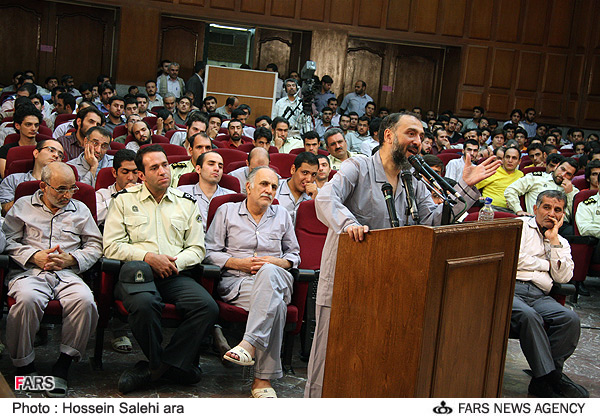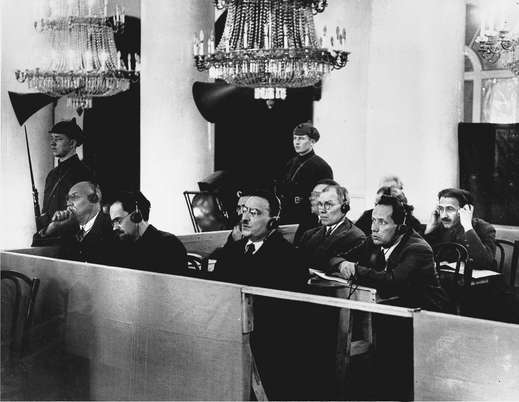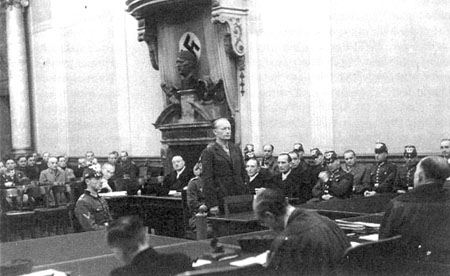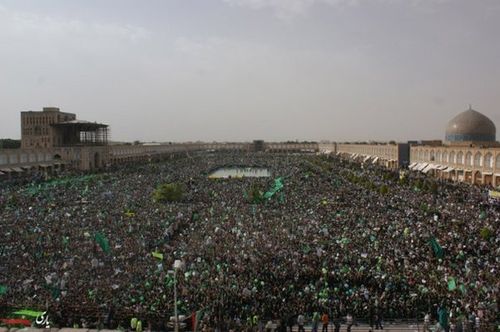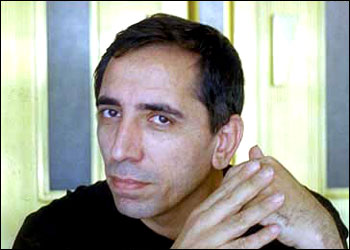Mohammed Ali Abtahi, der ehemalige Vizepräsident Irans unter Khatami und bekannt als der „bloggende Mullah“, vor dem Teheraner Revolutionsgericht am Montag. Dort wird gegen die führenden Figuren des Aufstands nach den Wahlen vom 12. Juni verhandelt. Man erkennt sie an der demütigenden Häftlingskleidung, die an Schlafanzüge erinnert.
Mich erinnert diese Szene allerdings fatal an die Ikonografie früherer Schauprozesse – wie etwa im Stalinismus und Nationalsozialismus.
Diesen Angeklagten während der Moskauer Schauprozesse der 30er Jahre wurde vorgeworfen, den Kapitalismus einführen zu wollen und darum den Sozialismus stürzen zu wollen.
Vor dem Volksgerichtshof wurden 1944 Mitglieder des Widerstands gegen Hitler abgeurteilt, hier Adolf Reichwein.
p.s. Was Abtahi im Gericht „beichtete“, berichtet Juan Cole auf seiner Website: Abtahi said after the 12 June presidential election, the reformists tried to insinuate the „illusion“ that there was a „fraud“ in the election. Abtahi said that it is impossible to have „fraud“ when there was an 11 million difference between the votes cast for Mir Hoseyn Musavi and that of Mahmud Ahmadinezhad. He said that spreading such ideas showed that some reformist leaders do not know society very well. Abtahi quoted the late Ayatollah Khomeyni saying that preservation of the system is the most important issue for all political groups. He added that thanks to the „strong position“ of the supreme leader, the damage caused by „the elite’s mistakes“ were compensated. Abtahi said that it was better for Musavi to send a congratulatory message to President Ahmadinezhad when he realized that the incumbent president had won the election by a difference of 13 million votes. He added that the political elites made a „big mistake“ by saying that the election was „rigged.“ Abtahi said that from a certain moment onward, the fraud became a „password for riots“ in Iran and criticized Mir Hoseyn Musavi for believing in such „illusions.“
Asked if his current position was under the effect of his imprisonment, Abtahi said the situation in the prison helped him to reach a conclusion about the recent incidents. Abtahi said he had no problems and concerns in the prison and praised his „courteous and polite interrogators.“ He added that his friends who have not been arrested yet share the same idea. He concluded, however they „have not the courage to express the same ideas.“
